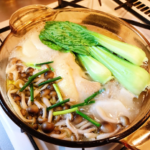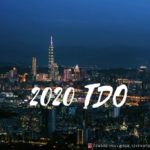Competition is the best practice
みなさん、お久しぶりです☺️
今回は5/16-17に行われたAsian Pro-Ams 2020について22期のOwenにブログを書いていただきました!Owenの自己紹介から各ラウンドについて具体的に、分かりやすく説明してくれてます!Owenの人柄も感じさせられるBlogですので、是非読んでください💫
それではどうぞ〜👇👇👇
Table of Contents
-
Self – Introduction
-
About Asian Pro-Ams 2020
-
General Impression
-
Self – Introduction
はじめまして、 this is Owen (Jinwan) Park from the 22nd generation of Keio Debate Squad. This article will exclusively be delivered in English due to my poor ability to comprehend Japanese; sorry for the inconvenience. Since it is my first time writing down the blog on the club’s website, I would start the article with a brief introduction. Technically speaking, I belong to 22.5 generation since I’ve joined the club from last September, after entering my PEARL programme in the faculty of Economics. My debate career started when I was a Junior in a high school located in Korea, yet the debating style was different from what we usually do in KDS sessions. With experiences before joining the college, my only consideration about which circles to join was KDS.
Frankly speaking, the choice to join KDS was the most valuable decision I made in my college life, given the fact that members of KDS are amazingly lovely and brilliant. Although I was a foreigner who couldn’t use Japanese, members naturally approached to me and guided me throughout the activities. Thus, if any international students fear to join KDS, I can assure you with full confidence that you have nothing to worry about. Even though you are not sociable or fluent in Japanese, some great people will make you comfortable and hang out with you occasionally (to this point, thank you all members, especially senpais and my friends who helped me not to get abandoned in Japan). You can earn fruitful experiences not only in debating but also in leisure, being introduced to great places in Japan.
-
About Asia Pro-Ams 2020
The competition that I will introduce is Asia Pro-Ams (APAD) 2020, which took place on June 16th and 17th. Pro-ams competition is where teams composed of one pro debaters and amateur debater (or two Ams) participate. For each competition, there are specific standards regarding the speaker status of debaters on whether they can be legitimately categorized as Am speaker. To get classified as Am speakers in APAD, they had to have no prior experience in debating major international tournaments (i.e., WUDC, UADC, Australs), which I fulfilled. I am a speaker, and I teamed up with Atsushi-san in the 18th generation, who is also a very profound debater in Japan. The competition was held by MIDP, which is a Malaysian equivalent to JPDU in Japan. It was conducted under BP rules and had four preliminary rounds. The level of the competition was high, with lots of debaters who have amazing debating careers participating.
-
General impression
Before the tournament – The moment when I saw participating institutions and debaters, my excitement turned into worries. The list was filled with prestigious debating institutions and numerous debaters who championed international tournaments. However, thanks to Atsushi-san’s encouraging words that it’s anyway good for us given that it’s a fantastic practice, although results are bad, I was able to concentrate on preparing the tournament. Other than going to KDS practice, our team practiced with other KDS senpais who participate in the competition. We only practiced for opening, as there weren’t enough members for full BP practice. It was helpful as we were able to practice thinking up with advanced constructive and prepare strategies to rebut on opponents. Hence, I think it is always essential to have thorough practices if you are planning to go out for international tourneys.
During the tournament – The tournament started around 12 in Japan standard time since there was a time difference of an hour. Such an occasion typically occurs after the outbreak of COVID-19, transforming the debating community more remotely. Thanks to this time difference and APAD’s org comm’s plan to organize only three rounds in day 1, I was able to have sufficient time to relax before and after the preliminary rounds. When I saw hundreds of people gathered in Zoom, I was excited yet nervous at the same time.
R1: With the motion of ‘THR the glorification of essential service workers,’ it was a pretty competitive round, as all four teams had reasonable arguments and analysis. We were Opening opposition; we mainly substantiated social advantages that this glorification exclusively attains, like how essential workers are encouraged to opt-in and sustain their responsibilities. After finishing our speech and the debate, we predicted that it would be a bit hard for us to take 1st since CG from Cambridge also gave a crucial argument. Fortunately, although it was a split decision, we took 1st with Chair voting for us.
R2: All teams were outstanding under the motion of ‘THBT the feminist movement should focus its efforts on encouraging men to “lean out.”’ We were CO, and with having opening substantiating almost every focal point, we received 4th place. However, although we lost, we learned lots of focal background knowledge regarding the motion and debating strategies when placed in the Closing bench—definitely an excellent educational round.
R3: Round 3 was pretty straightforward; we took 2nd under the motion of ‘THBT States should nationalize all healthcare services.‘ Although we thought our substantives were ok, it was impressive when CG brings up a new mechanism on why the gov-oriented medical system cannot outweigh the private market in which excessive competition and concentrated resources. After this round, I was so tired that I almost died right after I lay on my bed.
R4: On the second day, we had to win 1st in Round 4 to proceed to the out-rounds. The motion was interesting (THR the trend of young activists becoming leaders of social movements), but we worried that we were assigned to CO, the position in which we received 4th in R2. The opening half was more centralized on the debate of the probability of the movement led by young leaders will be successful or not. Hence, we alternatively provided how the emergence of young leaders trickles down the adulty leadership and encourages them to be cooperative and supplement each other’s respective weaknesses. We gave a depiction of how as a whole can advance the movement to attain a better probability of success. After the round, we were confident that we did not at least screw up the debate, and waited for the break announcement.
Break Announcement: Fortunately, we broke as 15th, with 8 points and 627 speaker points. We both were really glad that we were able to break and also with the fact that we took 1st in the round 4.
QF: In the quarter-final, we were assigned as CG under the motion of ‘THR the dominant narrative in children’s education that they should strive to be the best, even at the expense of others.’ In the end, it turned out to be an opening debate, as we failed to provide exclusive points. Needless to say, It wasn’t very reassuring to some extent, but it was also fulfilling that I was able to learn better bits of knowledge through this educational round.
After the tournament – Most importantly, I fell an enormous amount of gratitude (tho it’s not quantifiable lmao) to Atsushi-san, who led me through the tournament. It would have been impossible for us to reach this far without Atsushi3’s extensive background knowledge and debating strategies. I thank him for making me develop through the competition. My overall impression of this tournament was that competition is indeed a best practice. I was able to have access to sophisticated analysis and logics that opponents provide, and learn practically of how to win in a particular position, which was CO – Member for me, which in the end I was able to receive 1st and good speaker score (81) although it was only a single round. The situation of the pandemic, in my perspective, could be an excellent opportunity for debaters and judges to engage in international tournaments, which initially required burdensome expenses. To me, rather than merely fleeing from debating just because who cannot do it physically, I think it would be better to use our time wisely if you have incentives for it.
Motions
R1 – THR the glorification of essential service workers
R2 – THBT the feminist movement should focus its efforts on encouraging men to “lean out” rather than on encouraging women to “lean in”
R3 – THBT States should nationalize all healthcare services
R4 – THR the trend of young activists becoming leaders of social movements
QF – THR the dominant narrative in children’s education that they should strive to be the best, even at the expense of others
SF – THBT the climate movement is incompatible with capitalism
GF – THS the increasing trend of US isolationism
Results of Asian Pro-Ams 2020
Quarter Finalist : Not in the same class (Atsushi Sumida, Owen Park)
Thank you, Owen✨

 Previous Post
Previous Post Next Post
Next Post